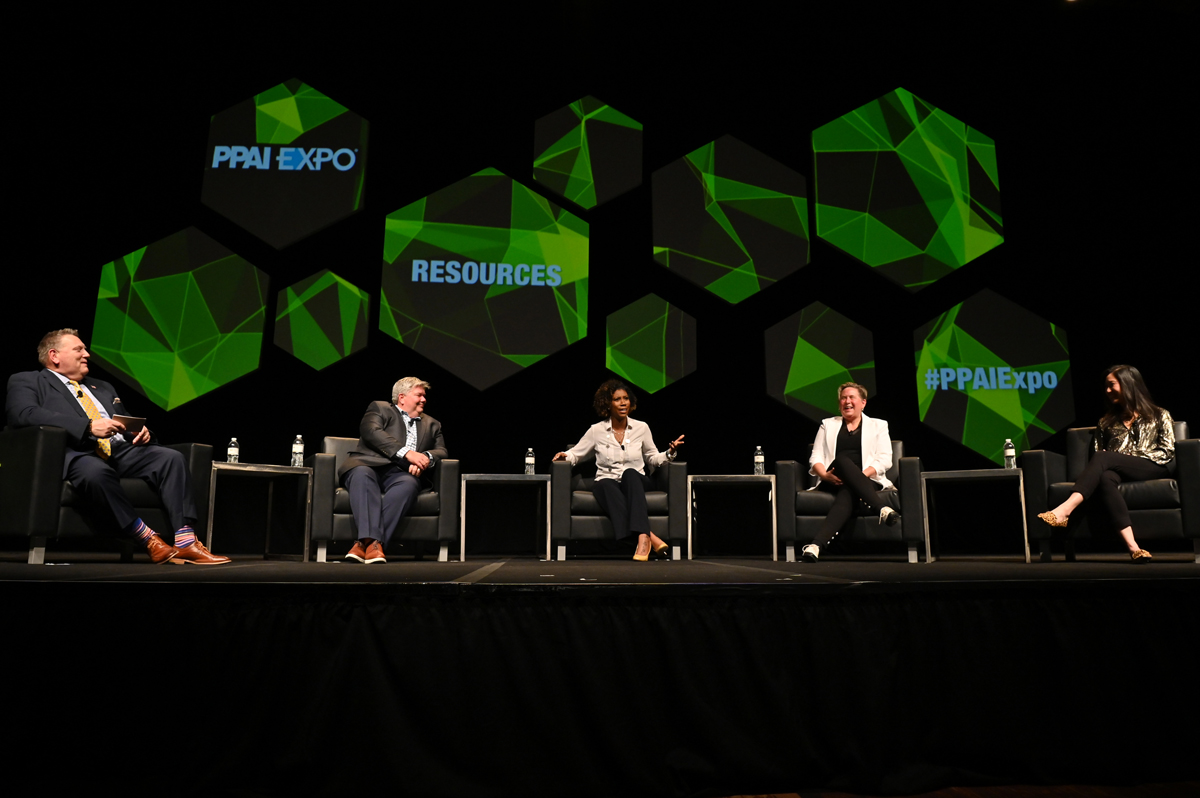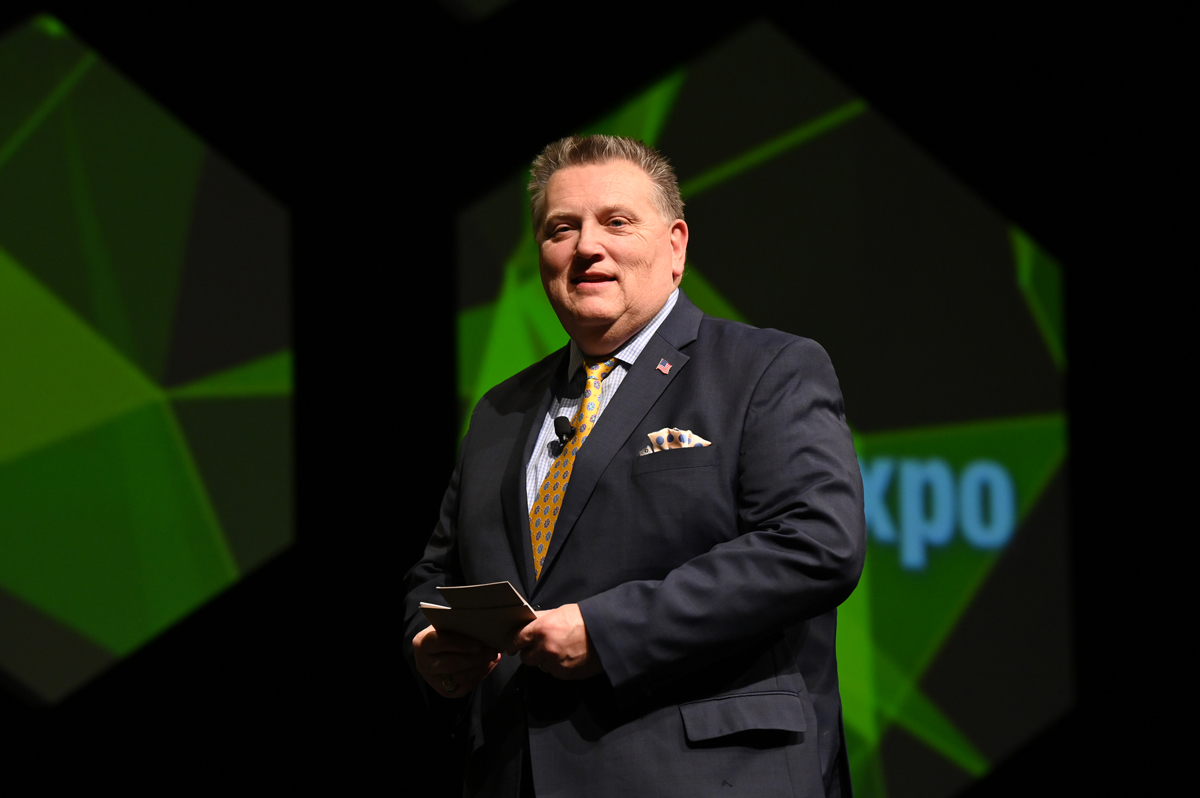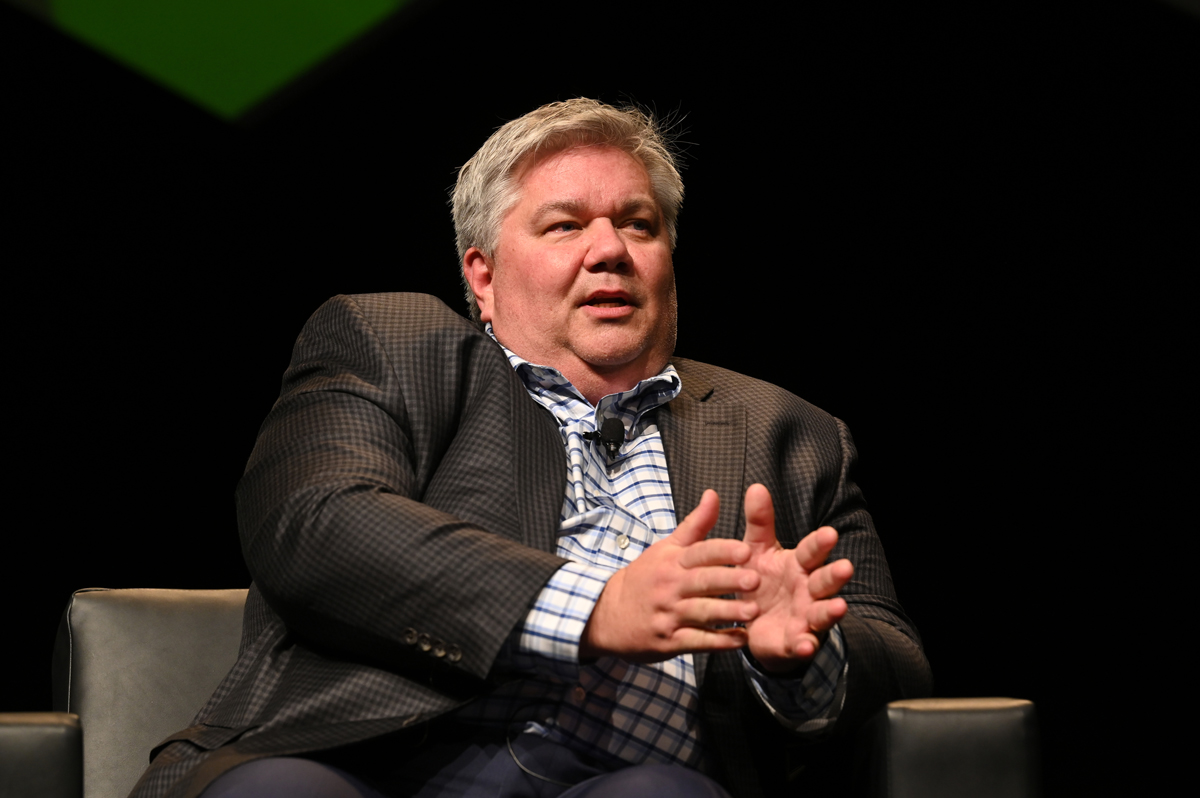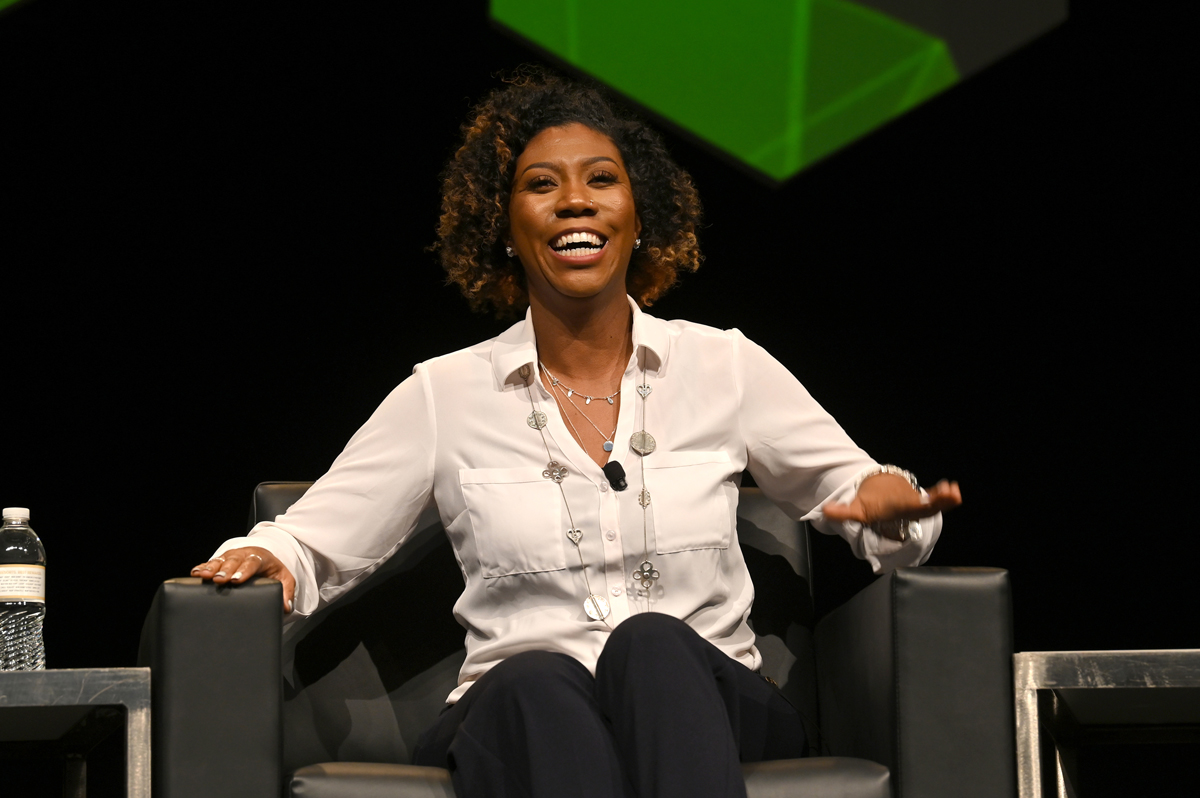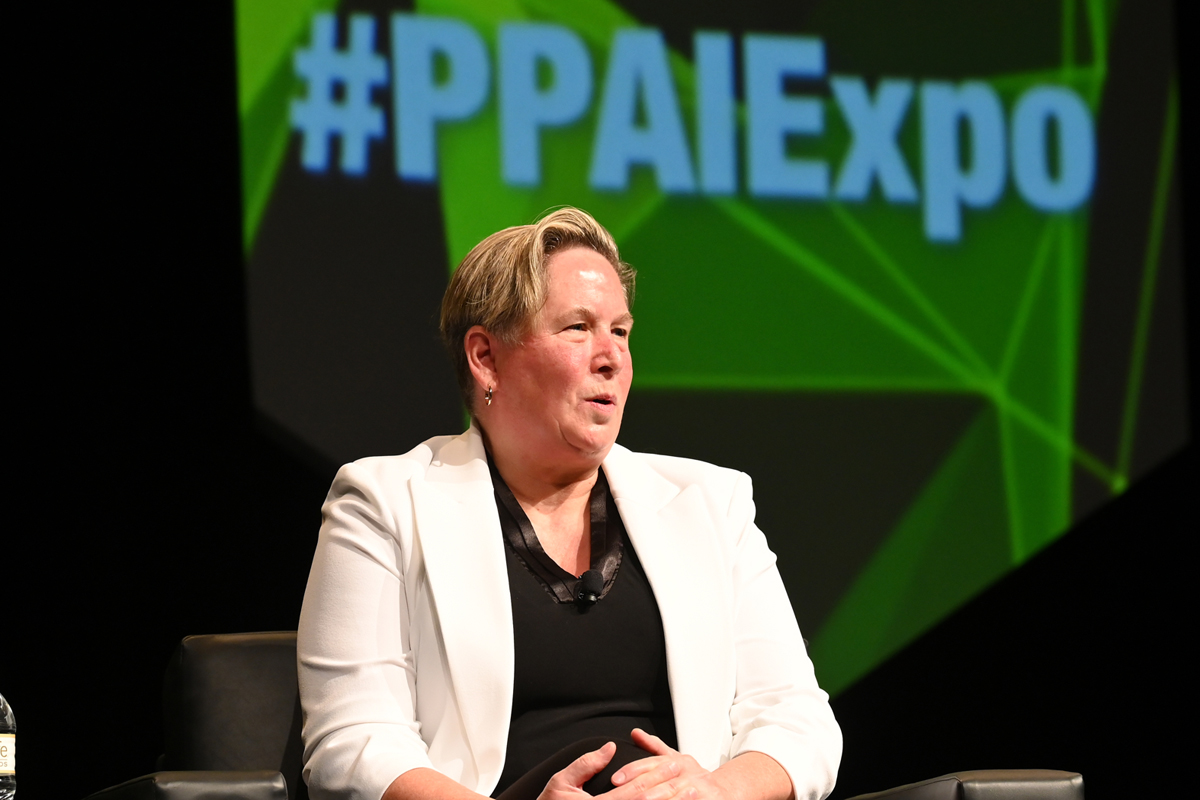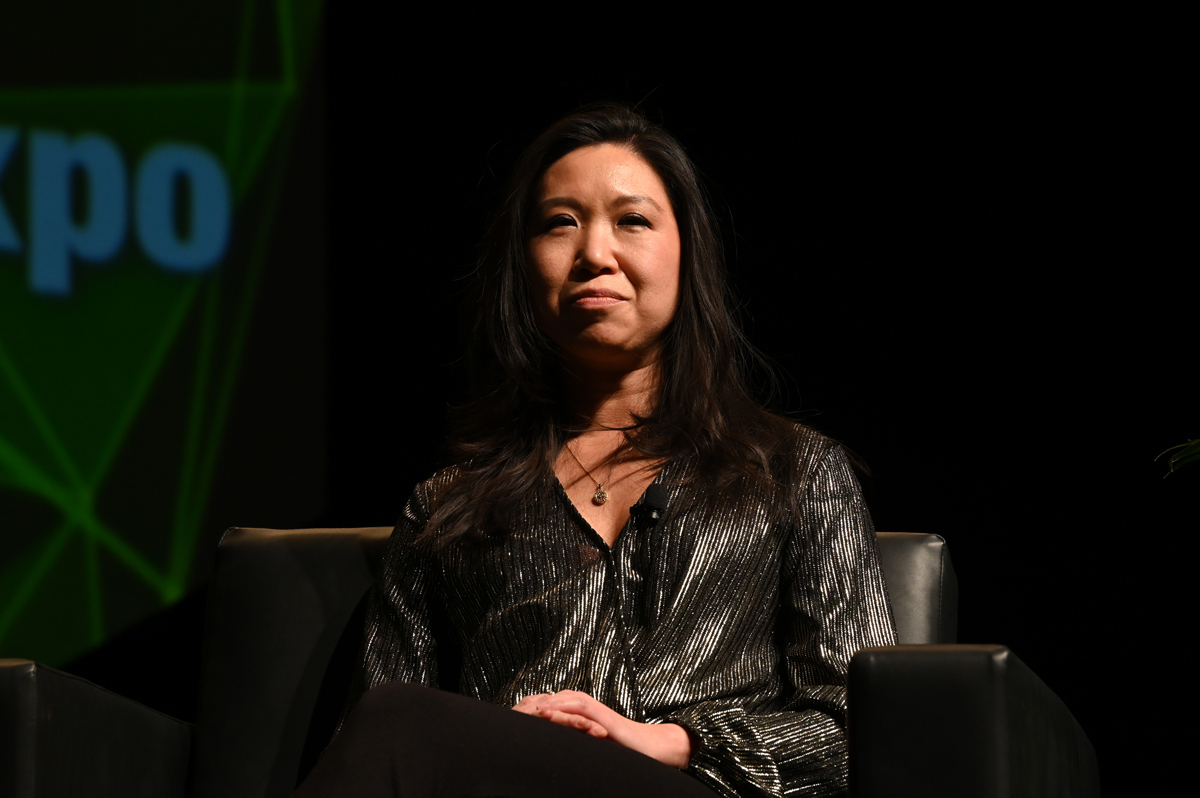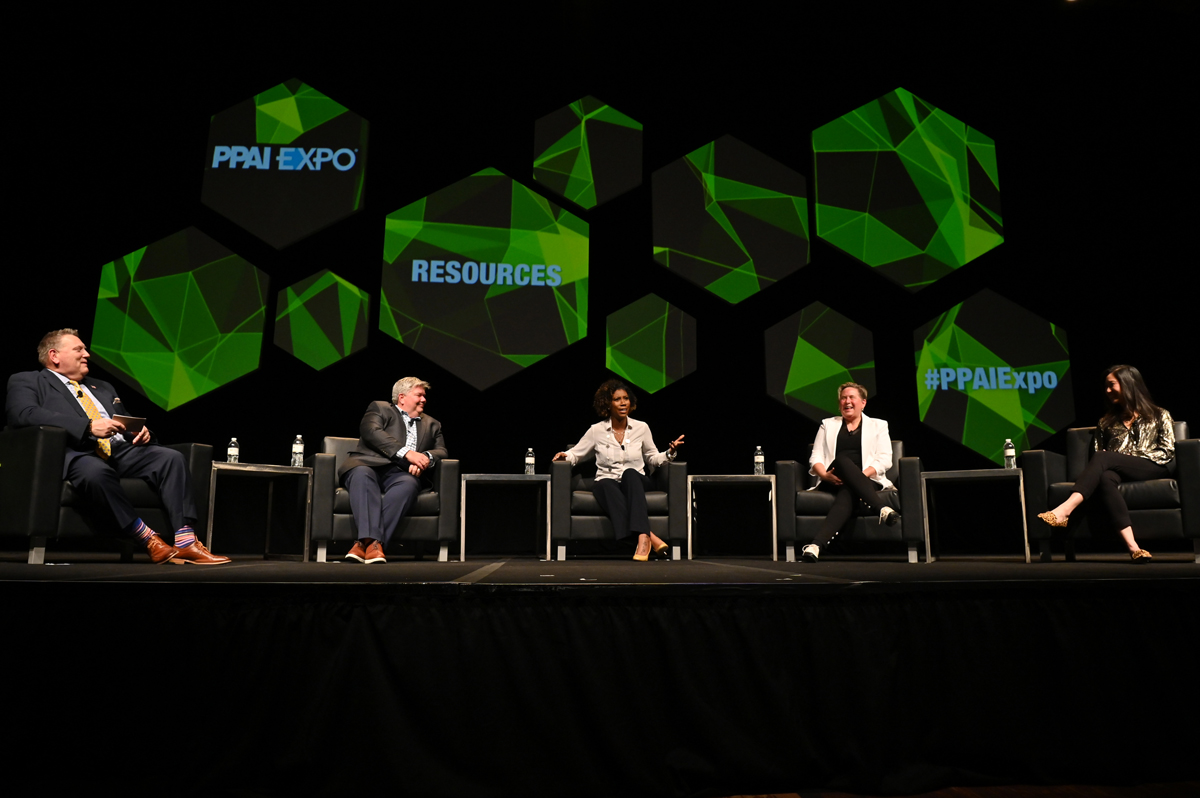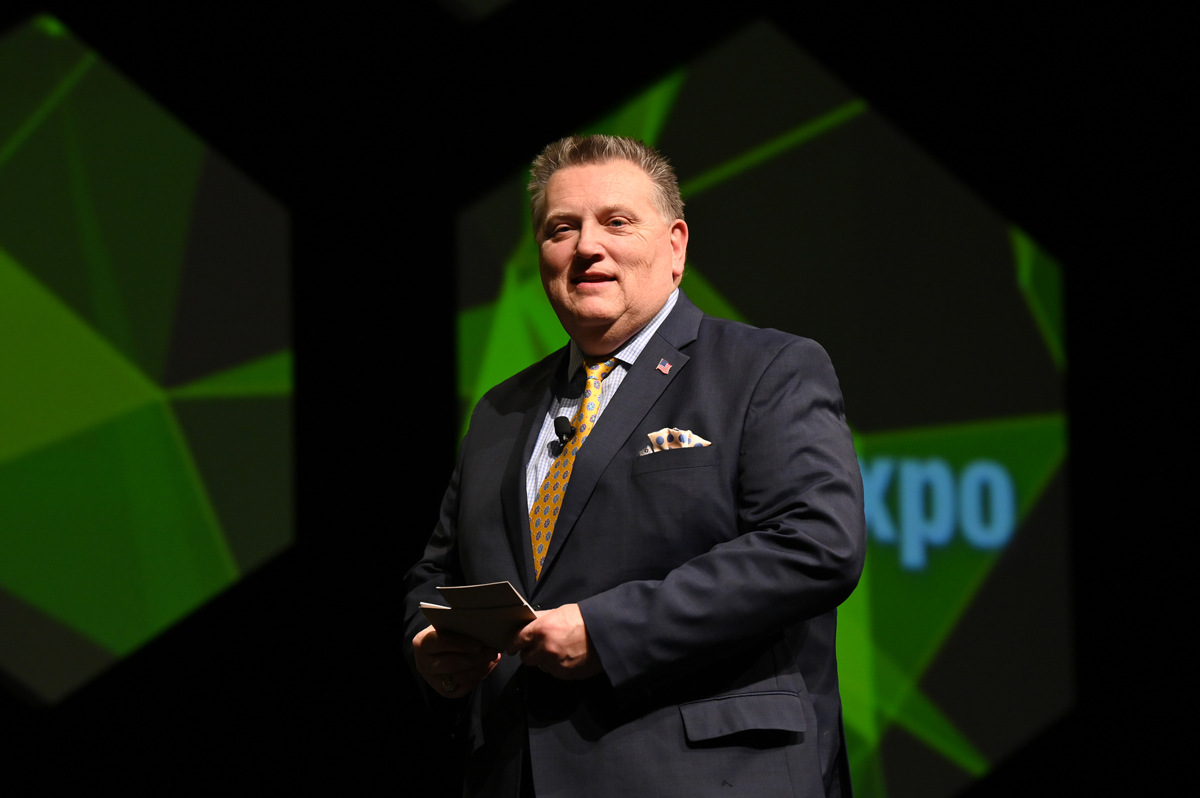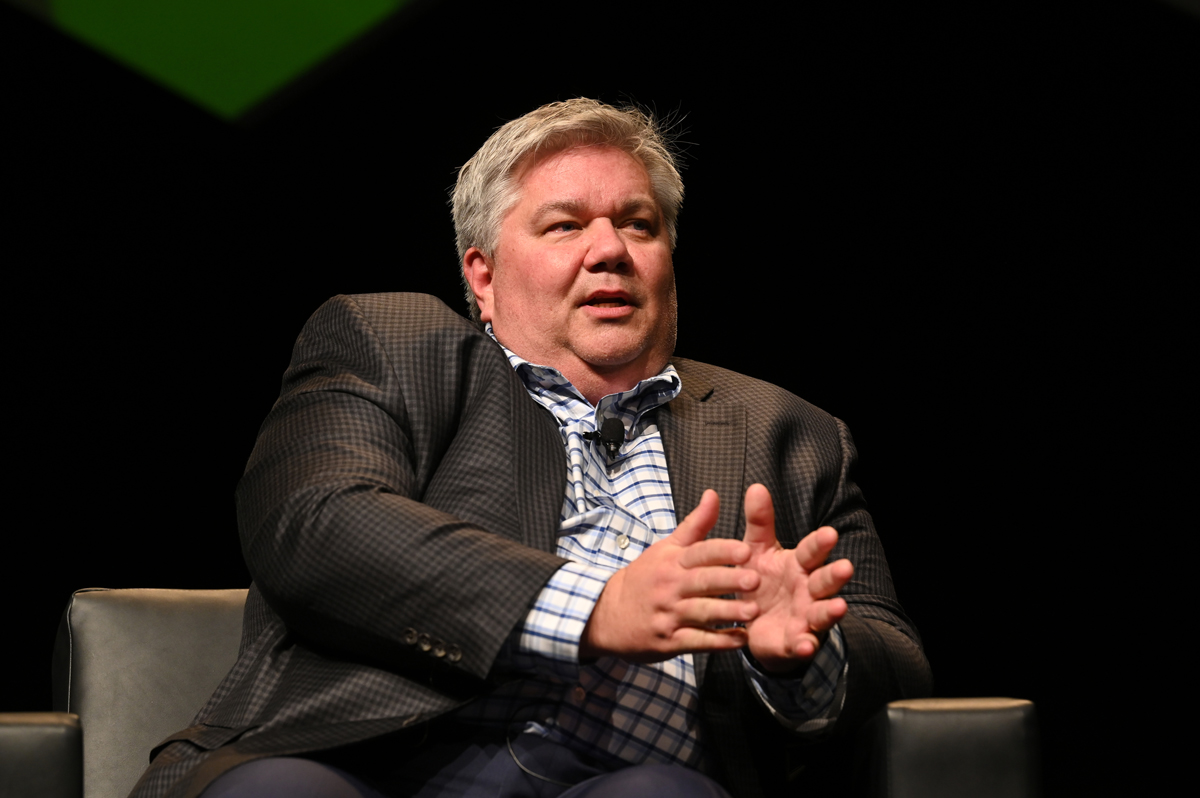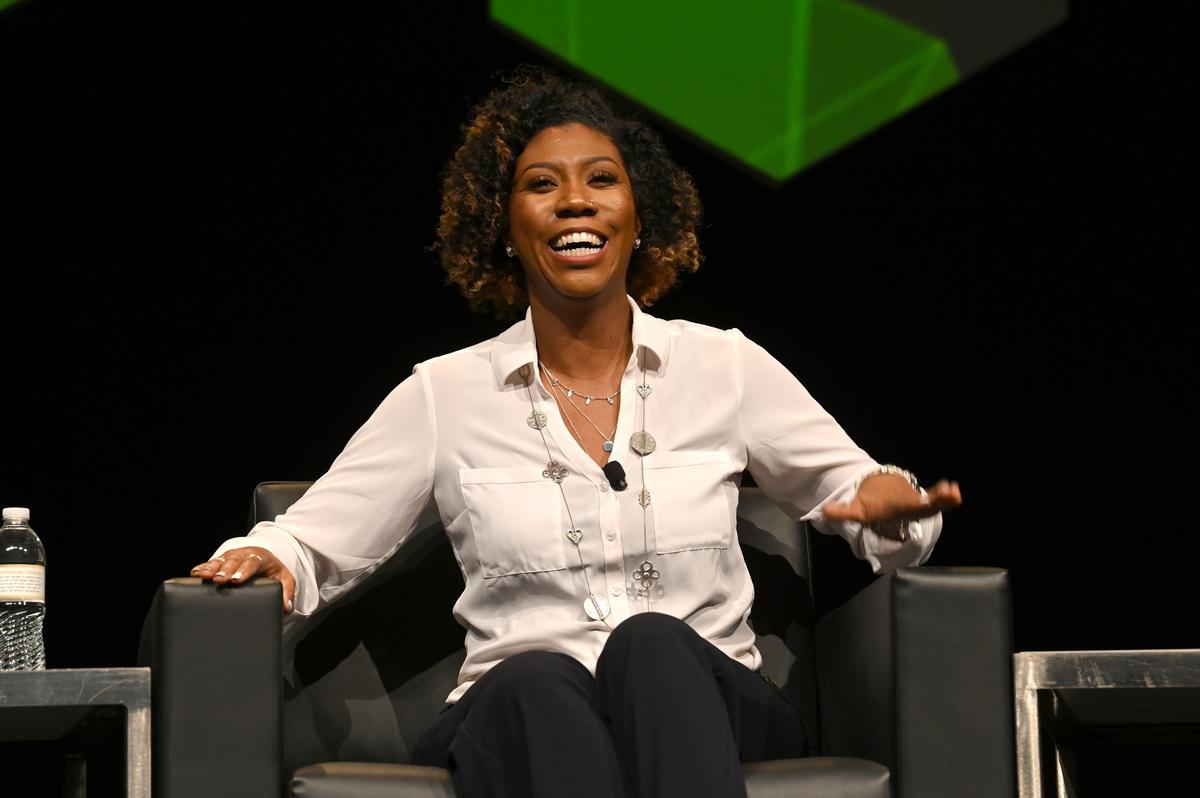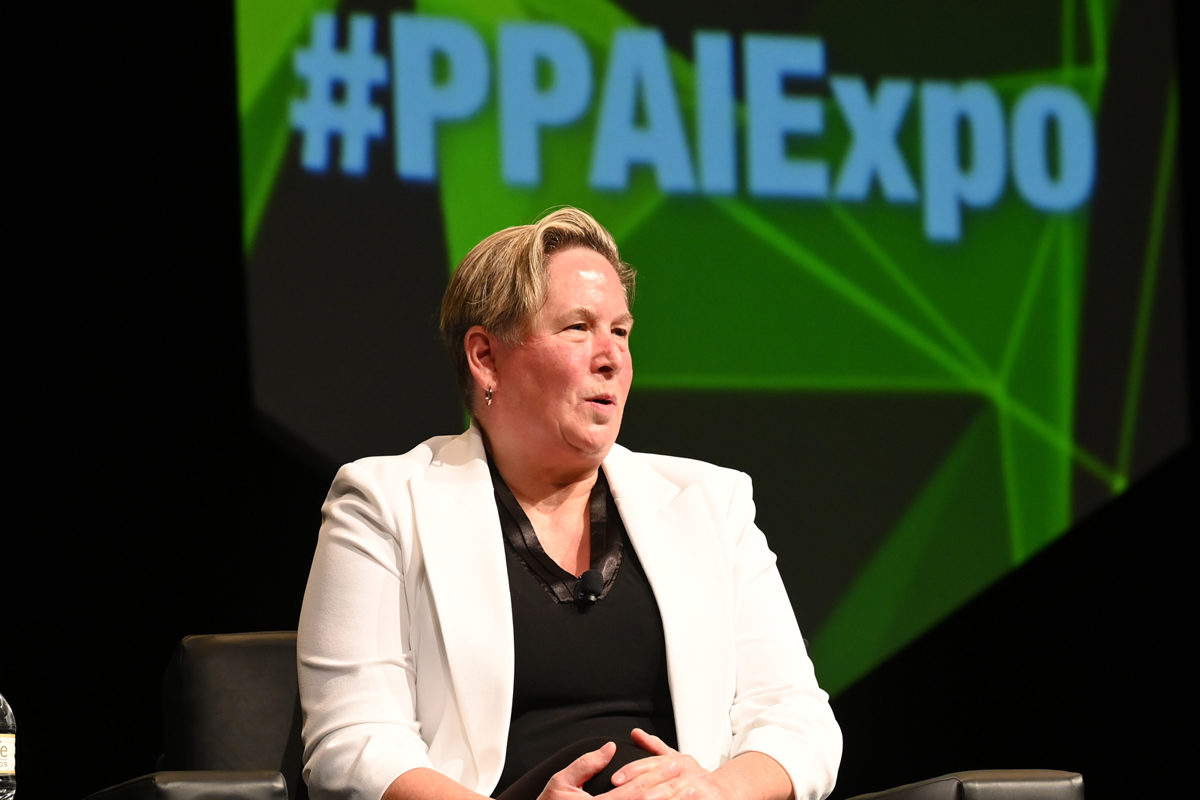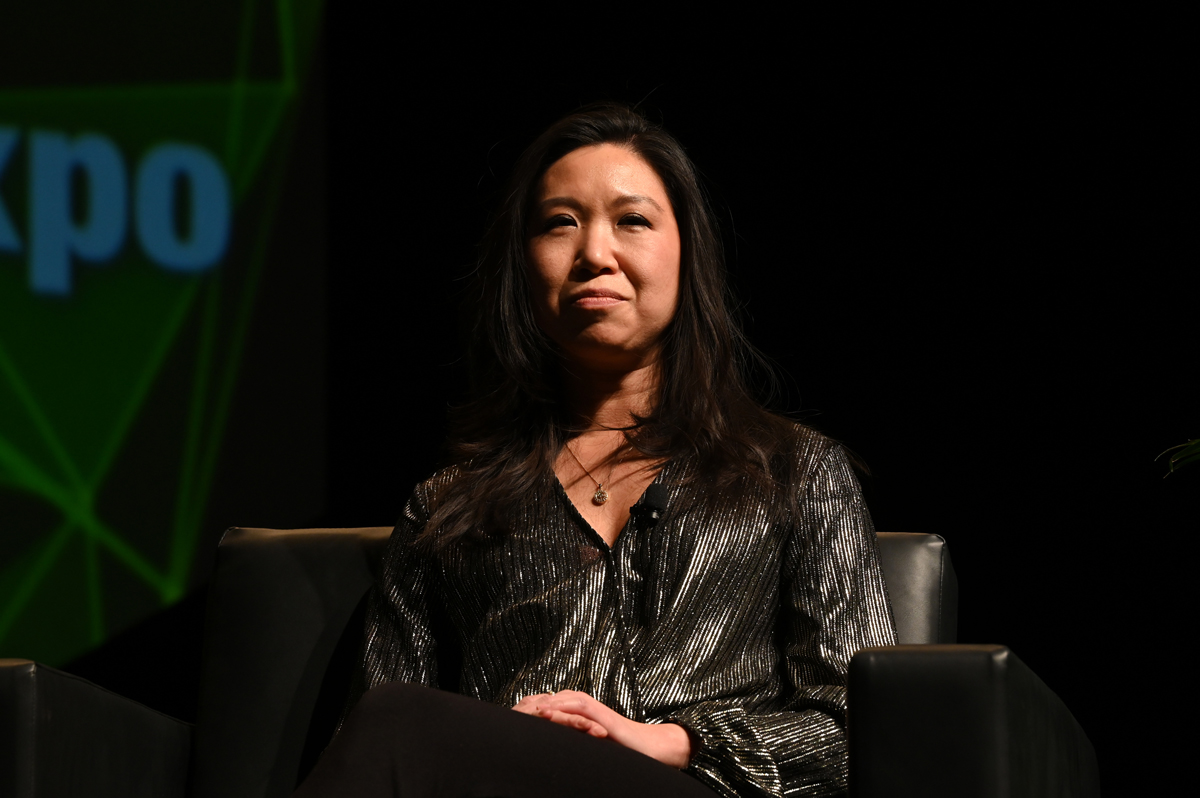Monday’s DEI Panel Centers On Change, Giving And Getting Opportunities
For professionals, diversity, equity and inclusion (DEI) practices make understanding each other better as individuals a priority within a work environment—by ensuring that everyone has a seat at the table.
In the Monday afternoon general session, "Building a Framework For Diversity, Equity and Inclusion in the Workplace," four industry leaders with their own stories to tell sat down for a rich discussion on DEI, associated challenges and opportunities, and best practices, while also peppering in their own personal experiences, and showing how they became catalysts for change themselves.
All four promo professionals—Latisha Marshall, VP of operations, ePromos Promotional Products; Tommy Lewis, VP, enterprise accounts and program sales, HALO; Elise Lindborg, CEO, Brand|Pride and Kathy DiFrancesco, CAS, VP of sales, SnugZ USA—represented a minority group, either individually or in regard to their companies’ ownership. Focal points centered on business certification, giving opportunities, using resources to translate skills and getting started.
On Business Certification
Brand|Pride, a West Seattle, Washington, distributorship that Lindborg founded in 2000, is a LGBTQ-owned and certified business, but it wasn’t a step that she took right away. “When we started our business 22 years ago, we never wanted to be known as ‘the gay company’ for fear of losing customers,” she says. “But when we got certified, it opened my eyes to a world of new customers.”
Today, Lindborg uses her business certification to allow her clients to spend intentionally and purposefully. In 2018, Brand|Pride conducted a survey at a conference attended by Fortune 500 companies, and found that less than six percent of them used LGBTQ-certified companies for their Pride merchandise. Being certified has allowed Lindborg to connect with new suppliers and clients, and to forge new partnerships. She recommends other promo professionals explore the certifications applicable to their business, which include women-, minority-, veteran- and service-disabled veteran-owned, and to use that certification to help their own partners and clients to spend intentionally.
On Giving Opportunities
After college, DiFrancesco went to work for Johnson & Johnson because a classmate told her about a program for minority workers. A first-generation American born to Thai and Chinese parents, DiFrancesco says, “that door opened up endless possibilities for me that I never knew existed.”
That initial chance that was given to Francesco—who’s been with the West Jordan, Utah, supplier SnugZ USA since 2015—inspired her to do the same, exemplifying the circle of goodness that’s possible through her own personal story. “I also tapped into supporting youth groups in my community [that served] different socioeconomic backgrounds. ... I saw that there was a pool of talent that’s just there, and they just don’t have the access. So, I dedicated a good portion of the last 10 years of my life supporting and encouraging youth of all backgrounds and all types that may not have an open network.”
DiFrancesco recommends that distributors and suppliers look at their DEI policies as their value system. She urges that, when conducting the interview process with potential candidates, to really try to get to know them individually, as people, in order to learn about them, their personal passions and experiences and the creative, unique and perhaps unforeseen ways they can contribute to the betterment of your business.
“This is a very important topic for me, because to me we’re the gatekeepers of giving opportunities, and so are you,” says DiFrancesco. “You can change the trajectory of an individual life just by giving somebody a chance and an opportunity that may or may not have it, and just never know what gold mine you opened up, but more than anything, you help people thrive.
On Using Resources To Translate Skills
Lewis has been a member of the promotional products industry for 23 years, but years before he served in the U.S. Navy. Lewis acquired and developed an array of valuable skills from his time in the military, but in the civilian world, it’s difficult to translate these skills in a way that is applicable and marketable. Lewis was advised by his captain to hire a resume writer; something which opened the doors to his next career.
“A real problem with military is they get out, and a lot of folks, depending on if they’re combat oriented, their focus is on destruction, and when you’re converting to the civilian world, that’s not highly marketable for most markets,” says Lewis.
It’s also difficult to describe how these skills translate into the everyday working world. “The military loves three-letter designations, and one of them is KSAs—knowledge, skills and abilities. They’re from a leadership perspective, from a fearless perspective, change management, all those things, but it doesn’t come out when you talk to somebody about what you did today. So, I put a lot of my time into figuring out how to help veterans make the move from being active into the civilian world,” he says.
Lewis points attendees in the direction of DOD SkillBridge, an organization that will pay veterans who have been out of the military for six months, to intern with a company and gain civilian workplace experience. He also homes in on how resources, such as hiring a resume writer, can help to ensure that everybody, no matter the range in skill, can express their talents, capabilities and experience in a way that’s digestible—and that a few helping hands can go a long way.
On Getting Started
Ancient Chinese philosopher Lao Tzu once said, “The journey of a thousand miles begins with a single step,” and Marshall strongly encouraged attendees to do just that by getting started on their DEI journey. “This is a thick category, a big issue, and taking the first step versus the whole staircase is important,” Marshall says.
Marshall, a Houston-born, Brooklyn-raised woman of Caribbean descent, actively helps others to take their first step through volunteering with a focus on helping underserved populations to access education and achieve literacy. She is a firm believer in “sharing as caring,” a phrase she says often, and believes that it all starts with having the courage to have difficult conversations, and to pass on potentially valuable information to industry peers who are also looking to grow.
“I say this often: #SharingIsCaring. It’s really important to talk to your peers, to share information. I know sometimes that’s quite uncomfortable—this conversation is uncomfortable—but it’s important to be ‘uncomfortably comfortable,’ I like to say,” she says. “Sharing is super important, and that way can build and grow with what we have, and years from now we’ll be talking about something else.”
She adds, “The big thing is just talking, getting it out. That’s always a good first step to breaking the ice and then starting [the conversation].”


